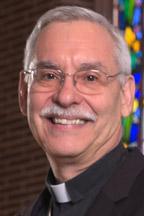
On national holidays we often hear speakers refer to the United States as the greatest country on earth. We are indeed a great country and certainly the most powerful country militarily -- even following the collapse of our efforts at nation-building in Afghanistan.
Twenty years ago, we conquered Afghanistan militarily, but we never did win the peace -- and neither will the Taliban. Why is that? Because power is not the same thing as greatness. True greatness comes not from the power to dominate,to coerce, but rather from the ability to persuade.
While we tried hard to inculcate western values of justice and equality for the benefit of the people there, we were able to convince only a certain portion of the population. When we force others to submit, as we did initially, and as the Taliban are now doing, we place ourselves over them. But instead, if we succeed in persuading people, they take ownership, and they are the ones who decide whether and how to change -- and indeed, it is only by changing hearts that we will ever get lasting peace there or anywhere.
We see that clearly in the Middle East. Bombing campaigns may have a strategic purpose, but they don't change hearts, at least not for the better. The most effective country is the one that does the best job of changing people's hearts. I think that would be Vatican City -- especially in these days of Pope Francis, which is the world's least powerful country militarily.
In the Gospels, for the last two weeks, Jesus tells us just how far he is willing to go to change people's hearts. Last week he said, "The Son of Man must suffer greatly and be rejected by the elders, the chief priests and the scribes and be killed." Today he says, “The Son of Man is to be handed over to men, and they will kill him."
But the disciples did not yet understand what true greatness is all about, so when they start discussing, "which of them is the greatest," Jesus tells them that they've got it all wrong: true greatness comes not from ambition and the power to dominate, but rather from the ability to persuade others with nothing more than self-sacrificing love, "making oneself the servant of all." This is what Jesus meant last Sunday when he said, "Whoever wishes to come after me must take up his cross and follow me. Whoever wishes to save his life will lose it, but whoever loses his life for my sake and that of the Gospel will save it."
So, I ask you: Who are the people who have had the most positive impact on your life? I'll bet they are the people who have sacrificed themselves the most for you. And how did they change you -- by coercion or by persuasion? I think of my parents. Sure, they had to discipline my bad behavior when they couldn't get through to me any other way. The same is true for countries -- diplomacy can only do so much; we need a military. But the most parents can do by force is compel outward compliance with what they want their child to do, presumably for his own good. But nothing really changes on the inside until the child has a change of heart. Parents can influence -- but ultimately have little control over -- the choices their child will eventually make as a teenager and as an adult.
As a freshman at the University of Oklahoma, I had a suitemate who went nuts with all kinds of wild behavior when he was no longer under his parents' control and as a result, he flunked out. My parents had worked hard to inculcate solid values in my brothers and sisters and me, and they did this through the persuasive power of their own good example and many years of patient, self-sacrificing love -- and at times, that meant embracing the cross. We were not little angels. But even so, persuasion is far more effective than coercion — in our families and world affairs. In today's Gospel, Jesus tells you how to be truly great: "Make yourself the last of all and the servant of all.”
Bishop Anthony B. Taylor delivered this homily Sept. 19.
Please read our Comments Policy before posting.
Article comments powered by Disqus Don’t sign new abortion petition, Bishop Taylor asks
Don’t sign new abortion petition, Bishop Taylor asks
 Bishop says Hot Springs priest taking leave of absence
Bishop says Hot Springs priest taking leave of absence
 Fasting obligation lifted for those cleaning up after storm
Fasting obligation lifted for those cleaning up after storm
 Jesus loves bad people the same as good people
Jesus loves bad people the same as good people
 The mess and miracle of Santo Niño de Cebú
The mess and miracle of Santo Niño de Cebú
 'Cabrini' film tells story of saint with great faith
'Cabrini' film tells story of saint with great faith
 Bishop Taylor announces more pastoral appointments
Bishop Taylor announces more pastoral appointments
 Most U.S. Catholics approve of Pope Francis, Pew says
Most U.S. Catholics approve of Pope Francis, Pew says
 Winning directory photo honors Our Lady of Guadalupe
Winning directory photo honors Our Lady of Guadalupe
 St. Joseph a model of solidarity with immigrants
St. Joseph a model of solidarity with immigrants
 Two gifts after Jesus’ death: Virgin Mary and Eucharist
Two gifts after Jesus’ death: Virgin Mary and Eucharist
 Why we have an altar, and not just a communion table
Why we have an altar, and not just a communion table
 Pope: Wars should be resolved through nonviolence
Pope: Wars should be resolved through nonviolence
 Living relationship with Jesus Christ in the Eucharist
Living relationship with Jesus Christ in the Eucharist